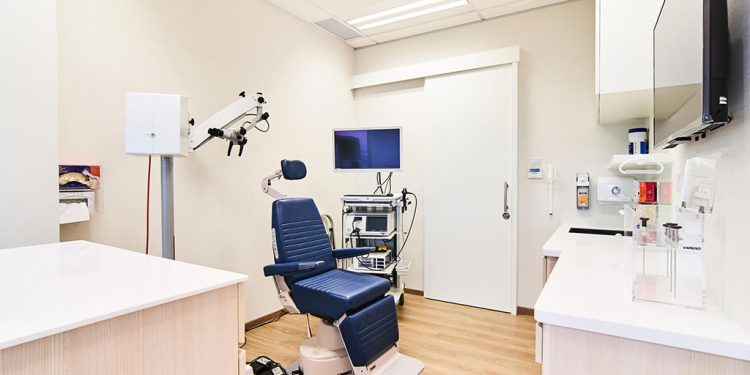When it comes to choosing an ENT (ear, nose, and throat) clinic in Melbourne, AU, there are a few important questions to ask to ensure you receive the best care possible. ENT clinics specialize in diagnosing and treating conditions related to the ear, nose, and throat, and can provide a range of services including hearing tests, allergy testing, and surgical procedures.
Table of Contents
Understanding ENT Clinics
What Is an ENT Clinic?
An ENT clinic is a medical facility that specializes in diagnosing and treating conditions related to the ear, nose, and throat. These clinics are staffed by ear, nose, and throat specialists, also known as otolaryngologists, who have received specialized training in diagnosing and treating conditions that affect these areas of the body.
ENT clinics are equipped with the latest technology and equipment to diagnose and treat a wide range of conditions, including hearing loss, sinus infections, tonsillitis, and more. They also offer a range of services, including diagnostic testing, medical treatment, and surgical procedures.
ENT Clinic Services
ENT clinics offer a range of services to diagnose and treat conditions related to the ear, nose, and throat. Some of the most common services offered by these clinics include:
- Hearing tests: These tests are used to evaluate a patient’s ability to hear sounds and are used to diagnose hearing loss.
- Endoscopic procedures: These procedures use a small camera to examine the inside of the nose and throat and are used to diagnose conditions like sinusitis and throat cancer.
- Allergy testing: These tests are used to identify allergens that may be causing a patient’s symptoms and are used to develop a treatment plan.
- Surgery: ENT clinics offer a range of surgical procedures, including tonsillectomies, sinus surgeries, and ear tube surgeries.
Overall, ENT clinics are an important resource for patients who are experiencing problems with their ears, nose, or throat. They offer a range of services and treatments to help patients get the care they need to improve their quality of life.
Factors to Consider When Choosing a Melbourne ENT Clinic
When choosing an ENT clinic in Melbourne, there are several factors to consider to ensure that you receive the best care possible. Here are some of the most important factors to keep in mind:
Location and Accessibility
One of the first things to consider when choosing an ENT clinic is its location and accessibility. Ideally, you want to choose a clinic like the Melbourne ENT Group that is conveniently located and easy to get to, whether you are driving or taking public transportation. This will make it easier for you to attend appointments and receive the care you need.
Clinic Reputation and Reviews
Another important factor to consider is the clinic’s reputation and patient reviews. Look for a clinic with a strong reputation for providing high-quality care and positive patient experiences. You can also read reviews from past patients to get a better sense of what to expect from the clinic.
Range of Services Offered
It’s also important to consider the range of services offered by the clinic. Look for a clinic that offers a wide range of services to meet your needs, from basic diagnostic tests to more complex surgical procedures. This will ensure that you receive comprehensive care all in one place.
Qualifications and Experience of Staff
Finally, consider the qualifications and experience of the clinic’s staff, including the otolaryngologists and head and neck surgeons. Look for a clinic with highly trained and experienced staff who have the expertise to provide the care you need. You can also check the qualifications and credentials of the staff to ensure that they are properly licensed and certified.
By considering these factors when choosing an ENT clinic in Melbourne, you can ensure that you receive the best possible care for your ear, nose, and throat needs.
ENT Conditions and Treatments
When it comes to ENT clinics, it’s important to choose one that has experience and expertise in treating a wide range of ENT conditions. Here are some of the common ENT conditions that a reputable clinic should be able to diagnose and treat:
Common ENT Conditions
- Ear infections: These are common in both children and adults and can cause pain, hearing loss, and other symptoms. Treatment may involve antibiotics, ear drops, or other medications.
- Sinusitis: This is inflammation of the sinuses and can cause symptoms such as congestion, facial pain, and headaches. Treatment may involve antibiotics, nasal sprays, or other medications.
- Tonsillitis: This is inflammation of the tonsils and can cause symptoms such as sore throat, difficulty swallowing, and fever. Treatment may involve antibiotics, pain relievers, or in some cases, a tonsillectomy.
- Deviated septum: This is when the nasal septum (the wall that divides the nasal cavity) is crooked or off-center. It can cause symptoms such as congestion, difficulty breathing, and nosebleeds. Treatment may involve medications or surgery.
- Voice problems: These can include hoarseness, difficulty speaking, and other issues. Treatment may involve speech therapy, medications, or surgery.
Advanced ENT Treatments and Surgeries
In addition to treating common ENT conditions, a reputable clinic should also be able to offer advanced treatments and surgeries for more complex issues. Here are some examples:
- Cancer: ENT clinics should have experience in diagnosing and treating various types of head and neck cancers, including those affecting the throat, larynx, and salivary glands. Treatment may involve surgery, radiation therapy, chemotherapy, or a combination of these.
- Hearing loss: ENT clinics should have experience in diagnosing and treating different types of hearing loss, including conductive, sensorineural, and mixed. Treatment may involve hearing aids, cochlear implants, or other devices.
- Sleep apnea and snoring: ENT clinics should have experience in diagnosing and treating sleep apnea and snoring, which can be caused by various factors such as a deviated septum, enlarged tonsils, or obesity. Treatment may involve lifestyle changes, devices such as CPAP machines, or surgery.
- Neck lumps: ENT clinics should have experience in diagnosing and treating neck lumps, which can be caused by various factors such as infections, cysts, or tumors. Treatment may involve antibiotics, drainage, or surgery.
Special Considerations for Different Demographics
When it comes to choosing an ENT clinic in Melbourne, it is important to consider the specific needs of different demographics. Here are some special considerations to keep in mind:
Melbourne ENT Services for Children
Children require specialized care when it comes to ear, nose, and throat issues. It is important to choose a clinic that has experience working with children and offers pediatric ENT services. Some important questions to ask when choosing an ENT clinic for your child include:
- Does the clinic have experience working with children?
- Do they offer pediatric ENT services?
- Are the doctors and staff trained in working with children?
It is also important to consider the environment of the clinic. A child-friendly waiting room and exam room can help ease anxiety and make the experience more comfortable for both the child and the parent.
Melbourne ENT Care for Adults and the Elderly
Adults and the elderly may have different ENT needs than children. When choosing an ENT clinic, it is important to consider the specific needs of this demographic. Some important questions to ask when choosing an ENT clinic for an adult or elderly person include:
- Does the clinic have experience working with adults and the elderly?
- Do they offer specialized services for conditions such as hearing loss or tinnitus?
- Are the doctors and staff trained in working with this demographic?
It is also important to consider accessibility for elderly patients, such as wheelchair accessibility and parking options.
Navigating Healthcare Systems
When choosing an ENT clinic in Melbourne, it is important to understand how to navigate the healthcare system. This can help you access the care you need and ensure that you are receiving the best possible treatment.
Referrals and Medicare
If you are seeking treatment for a specific condition, you may need a referral from your general practitioner (GP) to see an ENT specialist. In some cases, your GP may be able to refer you to a specific clinic or specialist. However, it is important to note that not all clinics accept referrals from all GPs.
When choosing an ENT clinic, it is important to check their referral policies and ensure that they accept referrals from your GP. You should also check whether the clinic accepts Medicare, as this can help to reduce your out-of-pocket costs.
Emergency and After-Hours Services
In the event of an emergency, it is important to know where to go for help. Many ENT clinics offer emergency and after-hours services, which can be a lifesaver in urgent situations.
When choosing a clinic, it is important to check whether they offer emergency and after-hours services. You should also check whether they have any specific procedures in place for emergencies, such as a dedicated emergency contact number or a protocol for contacting emergency services.
Preparing for Your Visit to a Melbourne ENT Clinic
When you have decided to visit an ENT clinic in Melbourne, there are a few things you can do to prepare for your appointment. This will help you make the most of your time with the specialist and ensure that you receive the best possible care.
What to Bring to Your Appointment
It is important to bring any relevant medical records, such as test results, x-rays, or previous treatment plans. This will help the specialist get a better understanding of your medical history and make an accurate diagnosis. You should also bring a list of any medications you are currently taking, including over-the-counter drugs and supplements.
Questions to Ask Your Melbourne ENT Specialist
Before your appointment, it can be helpful to write down any questions you have for the specialist. This will ensure that you don’t forget anything important during your visit. Some questions you may want to ask include:
- What is causing my symptoms?
- What treatment options are available?
- How long will it take for me to recover?
- Are there any lifestyle changes I can make to improve my condition?
- What are the risks and benefits of each treatment option?
By asking these questions, you can gain a better understanding of your condition and make informed decisions about your treatment.
In summary, preparing for your clinic visit can help you make the most of your time with the specialist and ensure that you receive the best possible care. By bringing relevant medical records and asking the right questions, you can work together with your ENT specialist to develop a treatment plan that is tailored to your needs.


 Home
Home









